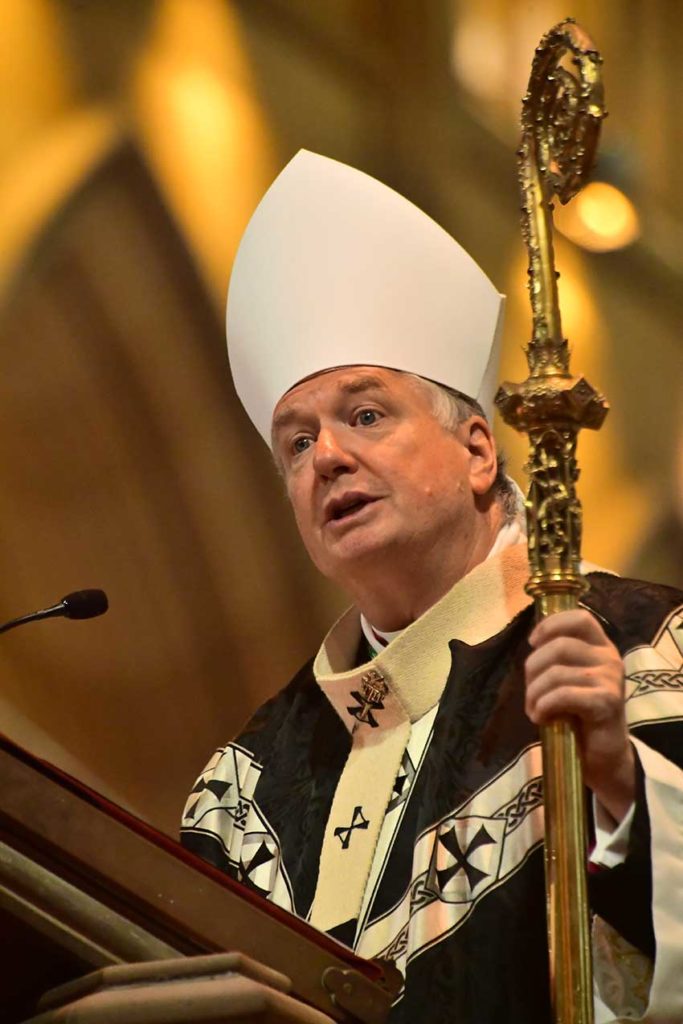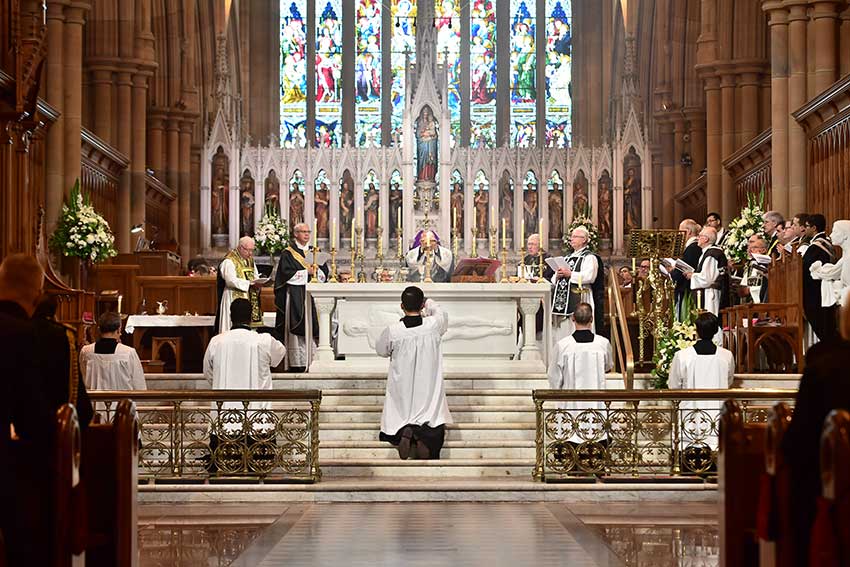
The Bible is ambivalent about monarchy. The kings of the earth threatened the security of Israel, and the people long resisted having their own king, lest he be a rival to God’s sovereignty. The Jews were taught to “put not your trust in princes, in mortal men in whom there is no help”. On the other hand, they thought of God as their heavenly king and of themselves as His subjects. Adam was a sort of overlord of creation. Abraham was blessed by Melchizedek “priest and king” and promised royal descendants. Moses’ covenant made Israel “a kingdom of priests and a holy nation”. Eventually there were some great kings such as David, Solomon, Hezekiah and Josiah, who made God’s law their own, and great queens such as Deborah and Esther.

But even Israel’s heroes were flawed, and most of the kings “did what was evil in the sight of God”—with disastrous effects. There were bad queens also, like Jezebel and Athaliah. One day, the Jews hoped, a worthy prince would occupy David’s throne and bring eternal peace and justice. But in the meantime they prayed, as when Zadok the Priest and Nathan the Prophet anointed Solomon king: “God save the King, Long live the King!” (1Kings 1:38-49; cf. Handel, Zadok the Priest)
The New Testament also knew bad kings, such as the two Herods, and good ones, such as the Magi. From conception to death Jesus Himself was celebrated as heir of David and king of the Jews. His mother Mary was called ‘Queen Mother’ by her kinswoman. While He resisted being proclaimed king or messiah too soon, Jesus accepted the role in the end. I suspect many people think Christ was Jesus’ surname: it is actually his title Anointed One, King.

So, when Jesus entered in triumph into the City of David, it was to fulfil the prophecy of Zechariah: “Look, your king is coming to you, humble and riding a donkey” (Zech 9:9; cf. Mt 21:1-11). Waving palms the people prayed: “Holy, Holy, Holy Lord! Hosanna to the Son of David! Blessed is He who comes in the name of the Lord! Hosanna in the highest!” (Jn 12:12-19; cf. Sanctus from the Mass) But His kingdom is not of this world. Indeed, as we heard in our epistle, God’s reign will ultimately do away with every earthly sovereignty (1Cor 15:20-28,51-57). All worldly monarchy is temporary.
“I declare before you all that my whole life, whether it be long or short, shall be devoted to your service and the service of our great imperial family.” So said the Princess Elizabeth on her 21st birthday, in what was effectively her betrothal to her people.
“Will you solemnly promise and swear to govern … [your] Peoples according to their respective laws and customs?” Archbishop Geoffrey Fisher asked six years later at her coronation.

“Will you to your power cause Law and Justice, in Mercy, to be executed in all your judgements? … Will you to the utmost of your power maintain the Laws of God and the true profession of the Gospel? …” “All this I promise to do.” Then she arose, went to the altar, and laying her right hand upon the Bible, swore “So help me God.” Pray for me, she asked, that she might be faithful to her calling. Pray for me, because we all need saving. And pray for her we did, every time we sang the Royal Anthem.
We prayed that God save her — from sin and damnation, sickness and untimely death, poor governance and defeat. Many find God’s will for their lives hard to discern. Elizabeth’s vocation was clearer than most. Yet still, she had to choose. Her uncle had said No; her grandson would also; her father Only-because-I-must. It came too soon. It might extend a long time. It would be challenging. But if God laid this task on her young shoulders, He would grace her to be a “gracious queen”. She responded with fidelity, praying regularly, attending church, living Christian civility.

Elizabeth preached the Christian faith by her life, but also in words, especially at Christmas. The God-man Jesus had been her anchor, bedrock, inner light. His teachings, she said, provide consolation and inspire reconciliation. They guide us to do small things with great love, promote goodwill, and instill hope. Gathering for worship, she said, gives purpose and prayer renews us in God’s love. Those invited to preach to her when she was at Braemar and Crathie were instructed to be brief and practical, and warned there would be a critique from the Duke! Only in the context of Christian discipleship can we make sense of the Queen’s devotion to duty and her people.
From sin and damnation, sickness and early death, poor government or defeat, we prayed God save her to be our Queen. Our prayer was answered. As our new head of state, she was received with jubilation on these shores in 1954 and would be enthusiastically welcomed ‘home’ to this country 15 more times. She proved indefatigable in her service. She was patron of over 600 charities and other organisations. Prince Philip once observed that his wife was idolised in her youth, inspired less interest in her middle age, but would be most deeply loved as she grew older. Sure enough, whatever people’s views of empire, monarchy or particular royals, admiration for the Queen was undimmed. Like Deborah, Esther and Mary of old, she gave herself completely to her vocation and we loved her for it.

We prayed God save her to be our gracious and noble Queen and that prayer, too, was answered. People of every creed, colour, culture and cohort witnessed her grace, human and divine, and her nobility, inbred and cultivated, which is why so many have grieved her passing. Here was a leader, not driven by ideology or political expediency, by desire for power or personal gain, but determined to uphold vital traditions, support her ministers, and encourage her people. Decent, hardworking, adaptable, patriotic, unshowy, personable, humorous — in the language of our first reading, she was a virtuous queen, appointed to rule over nations and tested like gold in a furnace (Wis 3:1-9).
When she met Pope John XXIII — I’m not sure who gave whom an audience — she impressed him with her “simplicity and dignity”. From Christ she learned “to serve rather than be served” (Mt 20:28).

We prayed that God send her victorious, happy and glorious. Still a girl in World War II, she helped steel her nation’s resolve to resist the evil of Nazism. Thrust too soon into duties of kingship, she helped her country emerge from its post-war gloom and her former colonies find their feet. There would be many other challenges, national or personal, each faced with stoicism, wisdom and charm. God sent her victorious in building a Commonwealth of Nations from the ashes of empire. He made her happy and glorious in maintaining her composure through adversity and her smile that lit up rooms and racecourses. There was surely satisfaction in a job well done, without sentimentality or looking for thanks. But gratitude there was, as millions gathered for and billions viewed her jubilees, pageants and funeral.
Lastly, we prayed that God send her long to reign over us and that prayer too was answered. Over her 70-year reign, for more than half the life of this Australian federation, she was a principle of continuity amidst cultural change, a reservoir of tradition in the face of the cut of ideas and thrust of politics, a beacon of hope in time of trouble. Her unyielding “till death do us part” commitment was not just to her beloved husband but also to her peoples.

Now we pray that King Charles will be guided by such beliefs and virtues, above all by that dedication to God-given vocation that should inspire all Christians. In his grief and ours, we recall that the departing Jesus promised His disciples that, as in Buckingham Palace, “there are many rooms in my Father’s palace”—including one being prepared for us (Jn 14:1-6).
The grandmother of nations was also our sister in faith, and we pray she now enjoys the Banquet Hall of heaven. As she entertained people from time to time by singing old favourites, she now sings her favourite psalm to us: “The Lord was my shepherd so I did not want … My head he didst with oil anoint … and me to walk didst make within paths of righteousness … Now goodness and mercy shall surely follow me, and in God’s house forever more my dwelling place shall be.” (Ps 23 Crimond)
One last time we pray: God save the Queen!
Related
